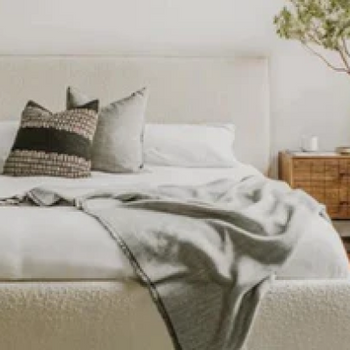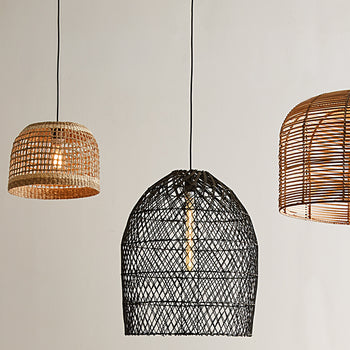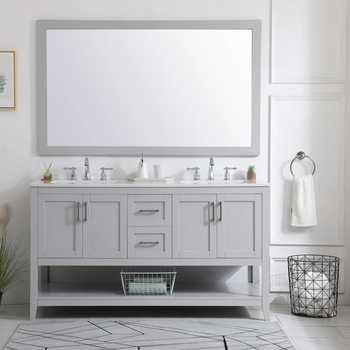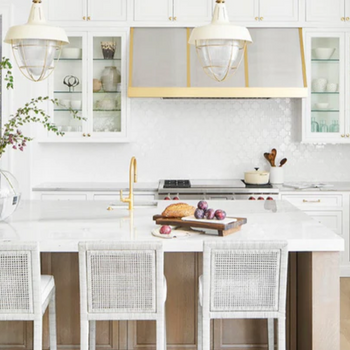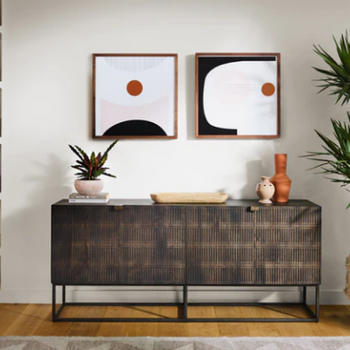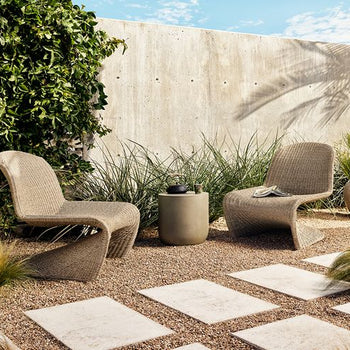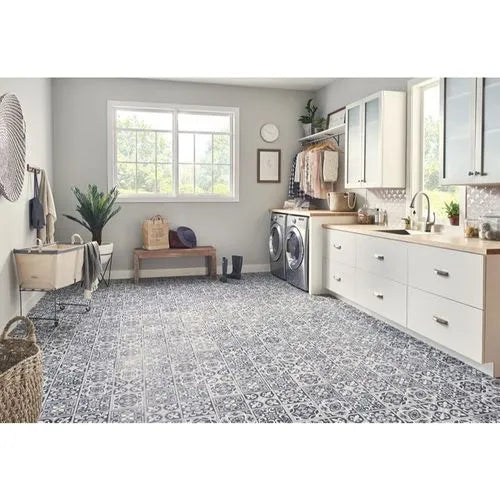How to Clean Vinyl Floors
By the Vevano Home Team
June 9, 2021
Vinyl flooring, especially luxury vinyl tile, is one of our favorite flooring options. Not only does it have a variety of finishes and looks to match almost any home style, but it’s also highly durable under heavy use—especially around kids and pets. It’s scratch resistant, stain resistant, slip resistant, and waterproof! All around, vinyl flooring is easy to clean and maintain. Read on to learn how to clean vinyl floors and keep them beautiful for years to come.
While the following cleaning guide applies to all vinyl flooring, we’ll reference luxury vinyl tile (LVT) throughout the article. LVT is a vinyl flooring option that comes in tiles instead of sheeting. It’s more durable and higher quality than traditional vinyl sheeting.
Take Preventative Measures
Initially, your mind may jump to sweeping and mopping when you think about how to keep your vinyl floors clean. However, you can save time and effort if you stop dirt and dust from being tracked into your house in the first place. Below are some preventative measures you can take:
Rugs and Mats—Keep door mats or area rugs at the front door, the back door, and even the garage entrance into your home.
Furniture Coasters—Avoid scuff marks by using furniture coasters (like these ones from Amazon) when moving heavy furniture.
Felt—If your furniture tends to slide around with use (especially if you have kids running around), you can attach felt to the bottom of the legs of your furniture to prevent scratches and scuffs.
Daily: Sweep
Dirt, dust, and crumbs can wreak havoc on your vinyl floors. Even with LVT’s durable protective coating, you run the risk of scratches if you leave these small particles lying around.
Do: Always dry clean before you wet clean. Sweep with a soft broom or vacuum up crumbs every day. Then, if needed, use plain water and a damp mop or rag to wipe up spills.
Don’t: If using a vacuum, make sure not to use the brush roll feature because it will scratch your floors.
Weekly: Mop
Dirt, grime, and sticky messes can build up throughout the week, so it’s important to mop your floors at least once a week (though you can certainly mop every day after you sweep if you so desire). This helps prevent build-up and the need for frequent deep cleaning methods.
Do: Sweep or vacuum (without the brush roll) before you mop. Plain water works well to clean LVT, but you can also add one cup of apple cider vinegar to a gallon of water for extra cleaning power.
Don’t: Don’t saturate your floor with water. LVT is waterproof, but there is always a chance that a plank or tile wasn’t installed correctly or has shifted as your floors and home have settled. Water could still seep between the cracks and damage your subfloor.
Monthly: Deep Clean, if Needed
If you’re a clean freak like we are, your daily and weekly cleaning routines may be enough to keep your floors as pristine as you want them. However, a deep cleaning every once in a while doesn’t hurt!
Do: Start by sweeping and mopping. Add a few drops of dish soap to your water if your floors are especially dirty. You can add shine to your floors by putting a few drops of baby oil in a vinegar-water mixture. Or you can follow our tips below to take care of stubborn messes.
Don’t: Avoid using sharp or abrasive cleaning tools and cleaners on difficult messes because they can scratch your LVT and start wearing down the protective coating. Also, it’s not necessary to wax your floors, and doing so will most likely cause a dull film to build up on your floor. You can’t refinish vinyl flooring like you can with hardwood, so dull-looking floors may need to be replaced.
Taking Care of Stubborn Messes
General sweeping and mopping should do the trick to keep your floors clean most of the time. But when you encounter tricky splatters and spills, you can spot treat them with these methods. Just be sure to wash cleaners off with plain water afterward.
Cleaners that Are Safe for Vinyl Floors
For most vinyl flooring cleaning needs, we recommend just using a simple combination of one cup of apple cider vinegar to a gallon of water. However, there are some commercial cleaners that are designed to care for vinyl flooring.
- Pine-Sol Original Multi-Surface Cleaner: This cleaner is safe for pretty much any flooring type. Dilute ¼ of the cleaner in a gallon of water and mop away!
- Pledge Multisurface Floor Cleaner: This is safe for all sealed and finished floors, including LVT. Mix ¼ cup of the cleaner with a gallon of water and you’re ready to go!
- Armstrong’s Once ‘n Done Resilient and Ceramic No-Rinse Floor Cleaner: This convenient cleaner is safe for no-wax vinyl floors (most vinyl floors don’t have wax coatings).
Important: Don’t use any cleaner that contains ammonia or bleach because those chemicals can remove the finish of your floor and cause other damage.
Mops that are Great for Vinyl Flooring
There are so many mops out on the market that it can be hard to figure out the best option to choose for your vinyl floors. In general, look for mops with soft, non-abrasive bristles or fibers that are excellent at absorbing water. Microfiber mops work well.
Here are some options we recommend:
- Twist and Shout Mop: This mop is excellent for LVT! It has a machine-washable microfiber head that won’t cause scratches. It’s ultra-absorbent to soak up excess water that could leave streaks behind. And the best part—it spins your mop head for you so you can ring out your mop head with little effort.
- O-Cedar EasyWring Microfiber Spin Mop: This mop is similar to the Twist and Shout Mop but has some additional features that make it easy to use. The high-quality foot pedal allows you to easily control how you spin your mop head to remove excess water and even comes with a splash guard!
- Swiffer WetJet: A Swiffer WeJet keeps things simple with soft cleaning pads and a built-in sprayer—and yes, the cleaning solution is safe for vinyl floors!
How to Know if it’s Time for New Flooring
After taking all the precautions and cleaning steps in the world, there will eventually come a time when you need to replace your flooring. Typically, lower-quality vinyl flooring will last at least 10 years, while higher quality options can last up to 25 years! Here are some of the signs it's time for an upgrade:
- The lamination is coming up
- You have deep scuffs that you can’t seem to clean off
- The flooring is discolored
- It’s peeling anywhere
- Damage caused by moving furniture or other wear and tear cannot be fixed
- Or your heart is telling you your home needs a change in look!
If you think it’s time to replace your flooring, check out all our luxury vinyl tile options. With so many looks to choose from, we know you’ll find something to match your home. And now you have all the tips you need to properly care for your floors to help them last for years to come.



